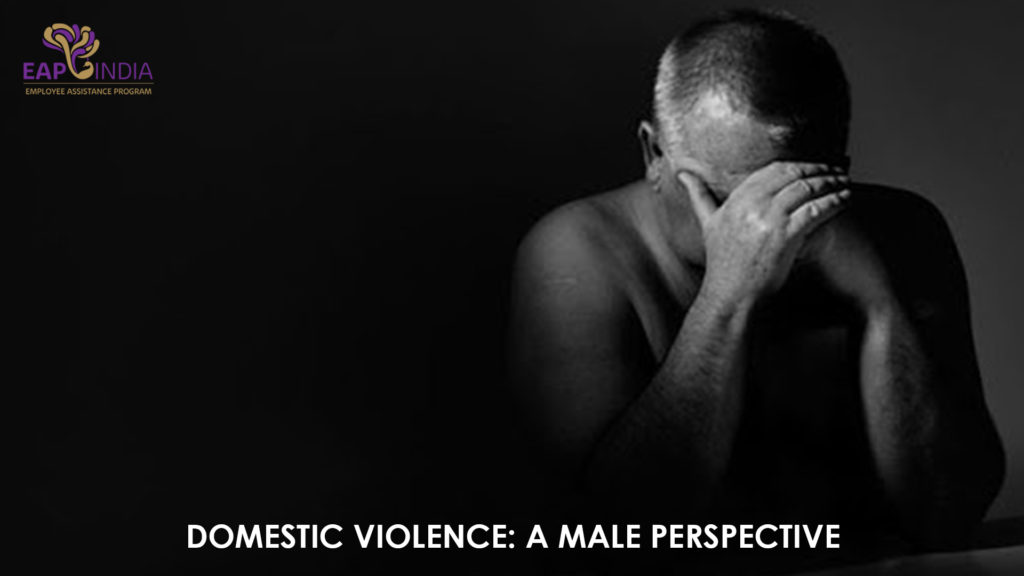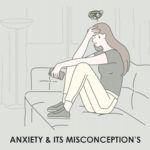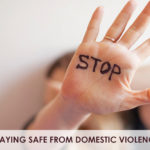Domestic Violence is defined as an act of aggression that can be committed by a partner or family member.
Since there is an absence of systematic data in relation to domestic violence against men, it is important to understand that both men and women are violent by nature. Both experience the effects of abuse in similar ways.
Men do report and allege spousal violence in private, but they hardly report it in public.
Several researches in the field of domestic violence has shown that men & women act violently in relationships at about the same rate. About half of all domestic violence occurs with both the partners abusing each other (Corry, Fiebert & Pizzey, 2002).
Gender roles & power relations along with norms, values have been changing over time. Women and men traditionally had very strict norms like men were always inclined to be powerful, aggressive, oppressors and women were inclined to be on the receiving end as oppressed, and silent sufferers of all forms of violence. Women couldn’t be violent either. It was always believed that men were the perpetrators and women were the victims; because of this notion, the society believes that men can never be victims.
Reasons Behind The Assumption: “Men Are Never The Victims”
- Men are the perpetrators of the violence, never the victim
- A “real man” can handle the abuse
- Domestic violence resources are available only for women
- Threat to the “men folk- their superiority and masculinity”
Apart from these reasons, supposing a man does come forward to accept that he had been abused, the society refuses to believe him. When men try to speak up about their problems, the torture they may go through, the struggle and the harassment within their marriage and family, there are hardly any people who even listen to them; the common stereotype here is that the society believes “A man can never face any problems, he can handle everything.”
There is analysis available that indicates dynamics of domestic violence and abuse among men and women is different, the reasons, purposes and motives are different too. However, the traumatic effects can impact the well-being of both men and women. One can find several researches related to women domestic violence and abuse but there’s hardly any literature present when it comes to men facing abuse and domestic violence.
Reasons Why Men Don’t Come Forward When Faced With Domestic Violence Within Family/Relationships
- Men believe that things will get better eventually
- There is a hope that men have that things will take a different turn, and everything will become better
- Abused men feel that they must make their marriages work
- They have a fear of losing social respect and position, protection, love towards their children and family.
- They are also afraid that if things fall apart, they will be blamed.
- Some abused men think that it was their fault and they feel that they deserve the treatment they receive.
- LGBTQ+ identifying men will bring shame to the LGBTQ+ community if they report their abuse.
Other reasons like there is an increase in economics which causes dependency on women. In recent years, the employment rates for women have been higher than men. Cases where an abused man is mentally, emotionally, financially dependent on women, the idea of leaving the relationship sometimes generates feelings of depression and anxiety.
How To Identify Signs Of Domestic Violence In Men?
Men most times don’t express what goes on behind the closed doors, but there are some signs that hint about physical, emotional or psychological abuse. If you notice these warning signs, think how you can help him escape from the situation.
Physical Signs
- Bruises
- Busted lips
- Black eyes
Emotional Signs
- Getting addicted to drugs or alcohol
- Developing low self-esteem
- Talking more about suicide
- Having extreme anxiety, agitation or constant apprehension
Effects Of Domestic Violence On Men
Men may undergo long-term health and emotional issues. Some of them can be:
- Nightmares & uncontrollable thoughts
- Depression & prolonged sadness
- Anxiety & low self-esteem
- Suicidal thoughts
- Addiction to alcohol & drugs.
Most people think that domestic violence victims only sustain physical injuries, but there are also long-term health problems like:
- Cardiovascular,
- Neurological,
- Mood Disorders.
Men may also face depression due to domestic violence. They may also sustain short-term injuries like bruising, broken bones.
Conclusion
No one deserves to be abused. It can have a crippling effect on male victims and the abuse should not be allowed to continue. Don’t be afraid to reach out & get the help that you need. Some men have started sharing their problems, the torture they go through, harassment they face by their spouses and families. Men do need help in times of crisis and family violence; with violence by spouse is a crisis. It is time to recognize their problems as a social and public health issue and develop appropriate strategies & interventions. There are also counselling & support groups for people that have also been in abusive relationships, that can provide the empowerment that you need.




